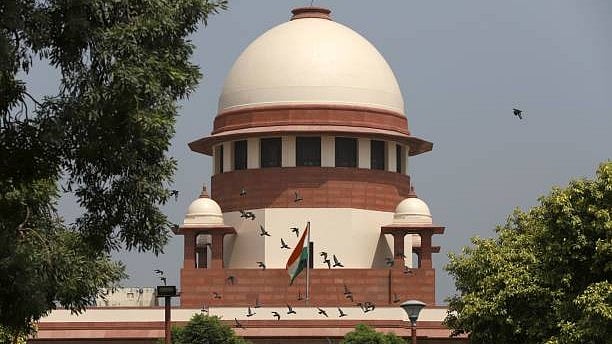
The Supreme Court of India
Credit: iStock Photo
New Delhi: The Supreme Court on Wednesday urged all women without sons, daughters or husbands to consider executing a registered will if they did not want their property to devolve upon the heirs of the husband, saying that a Will is essential to avoid potential litigation disputes between their parents and in-laws.
A bench of Justices BV Nagarathna and R Mahadevan noted that the Parliament in its wisdom had thought that the first instance heirs of the husband should succeed and thereafter, upon the mother and father.
Referring to the Hindu Succession Act, 1956, the bench said, possibly in 1956, the Parliament in its wisdom thought that there may not be many women in this country, who would have self-acquired property.
“However, the progress of women in these decades cannot be underestimated. Women in this country have progressed. Education, employment and entrepreneurship of women in this country including Hindu women has led to their acquiring self-acquired property,” the bench said.
The bench said if the self-acquired property is to be succeeded only by the heirs of the husband and if a Hindu woman dies intestate and in absence of sons, daughters, and husband, possibly it may lead to heartburn, so far as her maternal family is concerned.
“We appeal to all women, particularly Hindu women, who are likely to be in a position of 15 (1) (a) (Hindu Succession Act), at the time of their death, to take immediate steps to make a testament or a will, bequeathing their properties including their self-acquired properties in accordance with section 30 of the Hindu Succession Act read with the provisions of the Indian Succession Act,” the bench said.
The bench said it is important to safeguard the interests of not only women in this country in general but female Hindu, in particular, so as to avoid any further litigation in this regard.
The court disposed of a PIL filed by a woman advocate, Snidha Mehra challenging Section 15(1)(b) of the Hindu Succession Act, 1956.
She contended that the provision was arbitrary and violative of Articles 14, 15 and 21 of the Constitution and needs to be struck down.
